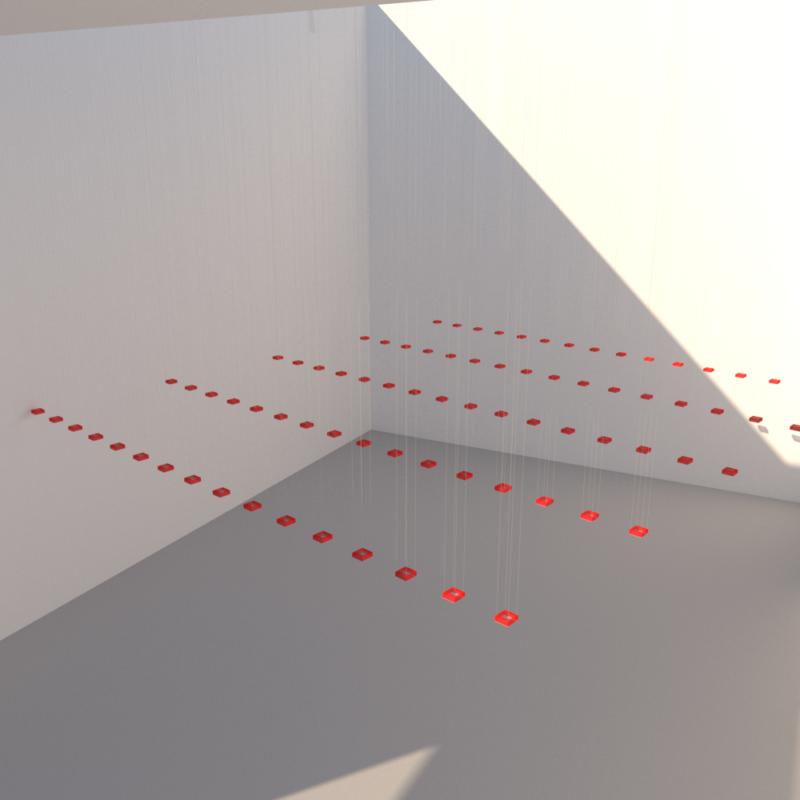The Lost Tapes of A Peoples’ Tribunal, 1982

Saturday, 2 December
2—7 pm
With a performative work and introductory speeches.
Sunday, 3 December
9 am —11 pm
The exhibition will stay open for approx. 14 hours to give the opportunity to see the work The Hearing in its entirety.
6 December 2023 – 4 March 2024
Wednesdays to Sundays, 12.00–17.00
While moving to Norway nearly a decade and a half ago, artist Ayman Alazraq accidentally came across 5 VHS cassettes, with a total of more than 14 hours of audio-visual material of a people’s tribunal gathered in Oslo in 1982 to bear witness to the horrific events of the Sabra and Shatila refugee camps in Beirut, Lebanon, on 16–18 September 1982. As a young student, he was trying to comprehend why this archive had been left behind and not entered institutional repositories.
Over 60 people who witnessed the massacres in Sabra and Shatila came to Oslo to testify and provide forensic evidence of what had happened less than two months after the dreadful events. Though he was not in Oslo, poet and playwright, Jean Genet was among the first foreigners to enter the camps and witness the carnage. He minutiously accounts for the war crimes his eyes encountered and endured.
The individual presentations in Oslo, supported by slides and other images, pointed out how the Lebanese Falangist militia carried out a massacre of Palestinian civilians in the Sabra and Shatila refugee camps. The Israel Defense Forces (IDF), which had invaded the country earlier that year, guarded the camps. As the massacre unfolded, the IDF received reports of atrocities but did not take any action to stop it. The PLO forces had been evacuated from Lebanon with a promise from the American and Israeli governments that the Palestinian civilian population would be protected.
The independent international commission meeting in Oslo consisted of six members from the British Parliament, as well as five professors from the United States, France, Ireland, England, and West Germany. They were tasked to investigate violations of international law in Lebanon. The commission also had a Nordic delegation consisting of Prof. Anders Bratholm, a law professor, and General Odd Vold, who worked for a long time in the UN from Norway; Ole Mogens Espersen, former Minister of Justice in Denmark; Ole Krarup, a law professor from Sweden; Hans Jon Frank, parliament member, and law professor, K.J. Lång, former Minister of Justice, and Allan Rosas, a law professor from Finland. Mahmoud Darwish, a Palestinian poet and writer who left Beirut a few weeks after the massacres, gave an address of what he reports as a purposeful cultural genocide.
Norway had stationed many doctors and journalists in Lebanon, which may explain why Oslo was chosen for the hearing. The location was non-institutional, demonstrating the lack of infrastructure for the prosecution of war crimes and crimes against humanity but witnessing people’s need to come together into a hearing form to seek justice independently and beyond a single nation-state’s jurisdiction.
The recordings documenting the meeting had disappeared from public view for decades. As copies were left to gather dust, Alazraq chose to call them, in the first instance, “The Lost Tapes.” The presentation of this material in its entirety and accompanying documents that the artist has gathered around these events, providing complex information about movements of liberation and art and culture’s role in forming these archives, is presented for the first time and accessible to the public to provide knowledge of the importance of single individuals carrying the weight of history for futurity. The exhibition mourns ongoing struggles for existence and provides an open space for discussion and reflection, where art plays a vital role in negotiation and healing, but also for remembrance even when that seems impossible, as in the escalating violence that we are witnessing again these days.
Ayman Alazraq makes films, photos, and mixed media artworks. His short film The Passport was screened at the National Museum of Cinema in Turin (Italy), the Cologne International video art Festival (Germany), among other places. His video and photography installation You From Now On Are Not Yourself was screened in venues in Spain, Norway, Denmark, and the Gaza Strip. In 2015 Alazraq’s short film Oslo Syndrome was presented in the Statens kunstutstilling in Oslo, Dubai International Film Festival, and London Palestinian film festival. In 2017, he produced the interactive installation WALL-1 in collaboration with Emanuel Sviden. WALL has been exhibited in various places, including; Podium Gallery, Oslo, 2017; Tabaklera, Spain; 2 Theaterhaus; Jena, Germany, 2018; Westfalischer Kunstvrein, Munster, Germany, 2019. Public Art Norway (KORO) permanently installed the work at the University College of Western Norway. You’re going to miss me when I’m gone, artwork projection on the City Hall wall 2020. The film, Into My lungs was screened at Kunstnernes Hus, Oslo in 2022.
Fotogalleriet has produced the exhibition. The artist thanks Arts and Culture Norway and KORO — Public Art Norway for supporting the project development.
Installation rendition by Liam M. Alzafari.



